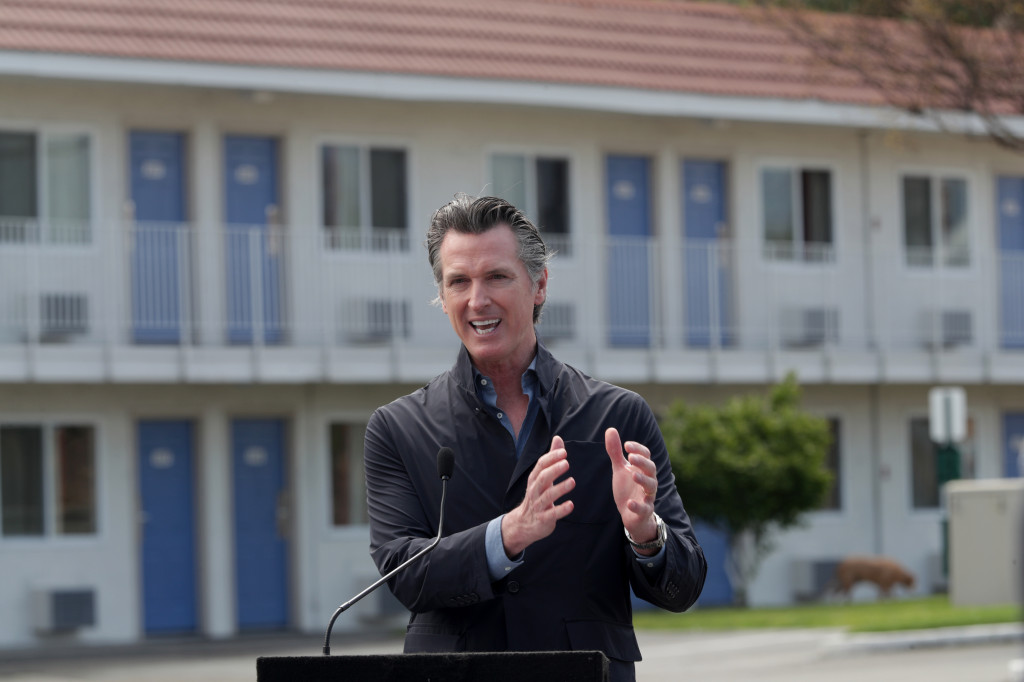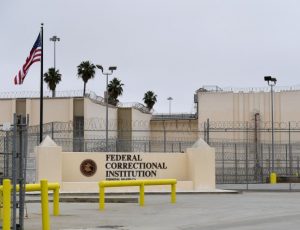State officials have confirmed California has begun to borrow federal government money to keep paying unemployment claims ushered in by a feeble job market infected by the coronavirus — but when that last happened, not that many years ago, taxes jumped.
It’s a dreary scenario, but one with a precedent triggered by the last recession: A trust fund supervised by the state’s Employment Development Department, or EDD, runs out of money to pay a rising tide of unemployment claims. That, in turn, forces cash-strapped California to borrow from the U.S. government to keep the jobless fund afloat and capable of making payments to displaced workers.
“We are getting very close” to the depletion of the unemployment insurance fund in California, Gov. Gavin Newsom said during a regular briefing on the state’s efforts to battle the coronavirus, including the deadly bug’s impact on the state’s tottering economy.
Before a catastrophe emerges for jobless workers, California has turned to the U.S. government to replenish the fast-shrinking unemployment insurance fund, according to the EDD.
“As of April 30, California borrowed $348 million from the federal government to ensure Unemployment Insurance benefit payments are made to eligible unemployed workers,” the EDD said in comments emailed to this news organization.
The state could borrow up to $10 billion from the federal government. These dire measures are needed, state officials say, due to the “unprecedented” flood of 4.1 million unemployment claims in California since approximately March 15.
“We are using every tool at our disposal to ensure impacted workers have the resources they need during this difficult time, and that funding is available to continue to meet the increased demand for these benefits,” the EDD stated in the comments sent to this news organization.
When California last had to borrow from the U.S. government to replenish the unemployment insurance fund, in the wake of the Great Recession, the state levied a special tax on businesses by reducing the tax credits that a business normally would receive for paying into the state’s unemployment insurance fund. That reduced credit effectively served as a tax increase for California businesses.
From 2012 through 2018, California businesses suffered an aggregate impact of $9.6 billion in higher tax payments as a result of the reduction in their unemployment insurance tax credits, according to an EDD report in October 2019.
The EDD report also stated that the Unemployment Insurance Fund achieved a balance of $2.3 billion in 2018, ending nine years of insolvency. The EDD predicted that the fund balance was expected to increase to $3 billion by the end of 2019.
The EDD warned of problems with the fund if it wasn’t restructured and reformed, however.
“The Unemployment Insurance Fund may not maintain a balance high enough to withstand an economic downturn,” the EDD stated, in an eerie foreshadowing of the state government’s current predicament.
These difficulties arrive at a time when the EDD continues to stagger in its efforts to pay unemployed workers.
California has now paid $7.8 billion in jobless claims, the governor estimated at his news briefing. That number includes both regular state benefits as well as payments for a newly launched pandemic unemployment assistance program.
“That is encouraging, but also discouraging if you are not one of those who have received checks,” Gov. Newsom said.
The latest estimate of $7.8 billion in payments to unemployed workers over a stretch from March 15 to about May 3 is well above the EDD’s April 25 estimate of $4.5 billion in payments.
Many workers have been in contact with this news organization, complaining that the EDD has failed to pay their jobless benefits; that the labor agency’s call center doesn’t respond for hours, days, or even weeks at a time; and that the EDD computer system is hobbled by glitches and unresponsive pages or links.
“It is impossible to contact EDD, no matter what number you dial,” said Vinod Gupta, an East Bay resident. “I have been trying for weeks.”
One East Bay resident who asked that her name not be used said the EDD has paid her thousands — even though she wound up being unemployed for no more than a day or so. The woman said she has attempted to notify the EDD that it could cancel her jobless payments. The EDD hasn’t responded. She opined that the money she is being paid unnecessarily might be put to better use paying people who have actually lost their jobs.
The governor said he is well aware of the problems people are facing in receiving their jobless payments as well as any assistance from the EDD.
“We hear you,” Gov. Newsom said at his briefing on Monday.



















